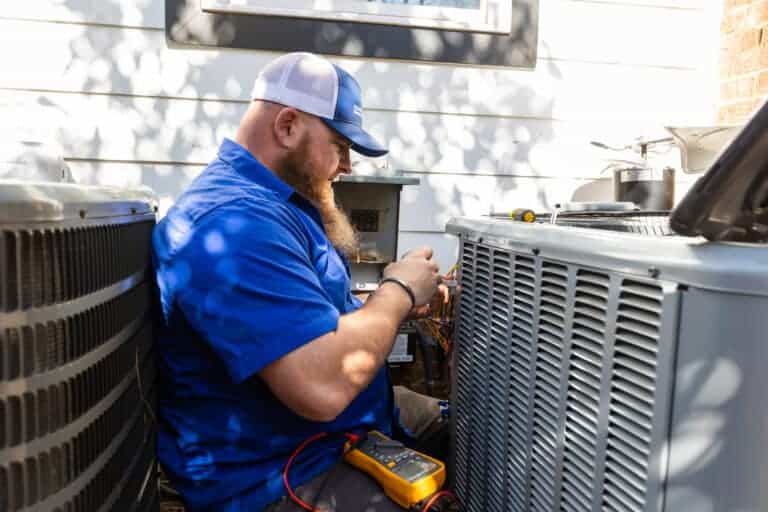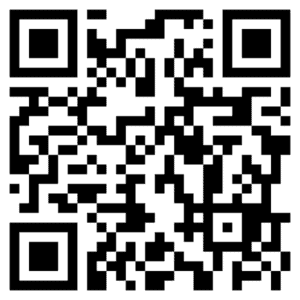Is your HVAC system acting up—blowing hot air, refusing to turn on, or making strange noises? Whether it’s the middle of summer or the dead of winter, HVAC issues and airflow problems can cause major discomfort and even lead to costly damage if left unchecked. Cooling and heating issues are common, but most can be fixed with the right troubleshooting.
In this complete guide, you’ll learn how to fix common heating and air conditioning issues, including step-by-step troubleshooting tips for no airflow, strange sounds, leaks, fan failures, and more. We’ll also help you decide when it’s time to call a professional for safe, long-term solutions.
Guide How To Fix Heating And Air Conditioning
No Airflow Is Coming From The Registers
If your heating or air conditioning system isn’t blowing air, follow these steps:
Step #1: Check if the circuit breaker has tripped. If it has, reset it.
Step #2: If resetting the breaker doesn’t work, the blower belt might need replacing. This is an easy fix, but a professional may need to handle it.
Step #3: If neither of these steps works, the issue could be with the thermostat, control board, or wiring, or the condensate pump reservoir may need emptying.
Odd Noises Are Coming From The Unit
Unusual sounds could be a sign of heating or cooling system problems such as cooling issues or AC troubleshooting:
Step #1: A squealing noise often means the belt is misaligned or needs replacement.
Step #2: A grinding noise suggests the motor bearings need lubrication. A technician can address this at the start of the season.
Step #3: Rattling or buzzing sounds could be from loose, dusty, or bent fan blades or coil fins. Clean them with a vacuum and secure any loose screws.
Step #4: If you hear pinging or popping, it might be a loose metal flap in the ductwork. Tighten any rattling cover panels.
The Unit Is Running, But It Isn’t Heating or Cooling
When your system runs but doesn’t provide heat or cooling:
Step #1: Look for a clogged condensate drain or a filthy air filter; if needed, replace or clean the filter and empty the drain.
Step #2: Check for leaks and make sure the system has enough refrigerant before adding more coolant or inspect the heating element (for heating). Ensure the system has enough coolant or proper airflow.
Step #3: If the coils are frozen (for AC) or the heating element isn’t glowing (for heating), switch off the power and allow the system to thaw or reset.
Step #4: If certain rooms in your central air conditioning unit are warmer than others, ask a technician to install dampers or check ductwork.
The Unit Struggles To Turn On
When your heating or cooling system is slow to turn on:
Step #1: Begin by checking the thermostat.
Step #2: Ensure the thermostat is set to “cool” (for AC) or “heat” (for heating) and lower the temperature.
Step #3: Check for a blown fuse or tripped breaker and reset the electricity.
Step #4: Inspect the wiring to see if the power supply is affected.
Step #5: If this doesn’t fix the issue, contact a technician to see if the wiring is still in place and if the cooling system’s motor is damaged.
The System Doesn’t Lower Humidity Or Leaks
If your system isn’t managing humidity or is leaking:
Step #1: Turn off the power and use a wire to clear the drain channels (for AC).
Step #2: Use a bleach solution to clean algae from the pump system while the system is off.
Step #3: Check for leaking pumps that may need replacing (for AC).
Step #4: Verify that the pump’s electrical connections are intact.
Step #5: Check the oil level, refrigerant pressure, or safety switches. A refrigerant leak could trigger the low-pressure safety switch (for AC).
The Fan Isn’t Functioning
If the fan isn’t working, the system can’t heat or cool effectively:
Step #1: Look for wiring issues or tripped switches that could stop the fan from getting power.
Step #2: Try pressing the reset button to reboot the system.
Step #3: After turning off and unplugging the unit, check the fan blades and clear any obstructions.
Step #4: Clean or replace the filter if it’s dirty.
Step #5: If these steps don’t work, the internal control board, capacitor, or another component might need replacement.
There Is Hot Air Coming From Your Air Conditioner
If you’re getting hot air from your air conditioner or cold air from your heater:
Step #1: Recalibrate or replace the thermostat, as this could be the issue. Digital thermostats are a good option.
Step #2: Replace the air filter if it’s clogged, as this restricts airflow.
Step #3: For AC, if the condenser or evaporator is blocked, switch off the system and clean away debris. For heating, ensure there’s no blockage in the ductwork.
Step #4: Clean the condenser fins and coils (for AC) or heating elements (for heating). Yearly maintenance can prevent damage.
Step #5: Check the refrigerant level (for AC) or the heating element’s power supply.
Conclusion
Consult with a local professional technician if your heating system is having problems or if you simply want to ensure that everything is functioning properly before winter arrives. They undoubtedly know how to fix heating and air conditioning. However, if you decide to perform it yourself, make sure that nothing you do causes damage to your air conditioning system’s warranty or puts you at risk of receiving an electric shock.
The best course of action for nearly every case of common air conditioning issues is to contact a professional technician for assistance. A professional can accurately evaluate the issue and provide you with advice on whether to replace or repair a malfunctioning air conditioner.



